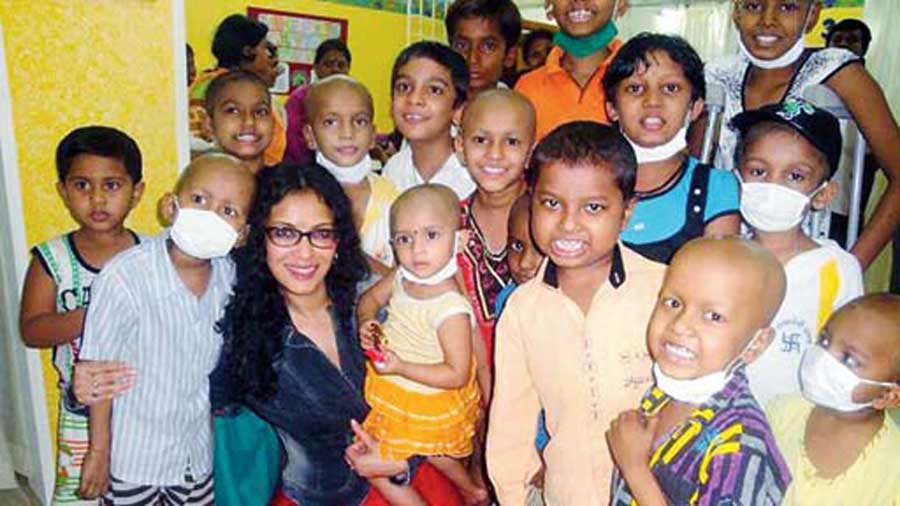Save the Children, India’s leading independent child rights’ NGO, joined hands with activist, actor and author Nandana Sen to launch their campaign ‘For a Safe Tomorrow’ to help and support vulnerable children in West Bengal. The NGO that has its footprints in over 18 states, decided to implement a programme for children affected by the Covid-19 crisis and cyclone Yass. Sen is the brand ambassador for Save the Children and relentlessly works for the betterment of children –– a cause very close to her heart. The successful campaign garnered donors aplenty that led them to increase the number of children receiving support from 200 children to 300. Sen, who was briefly in the country this year, made it a point to visit Sunderbans, across two coastal blocks in South 24 Parganas most-affected by the crisis. Sen has represented UNICEF, RAHI and Apne Aap in her fight to end child-trafficking and she took some time off during her hectic visit to India to speak to The Telegraph at length about her passion project. Excerpts.
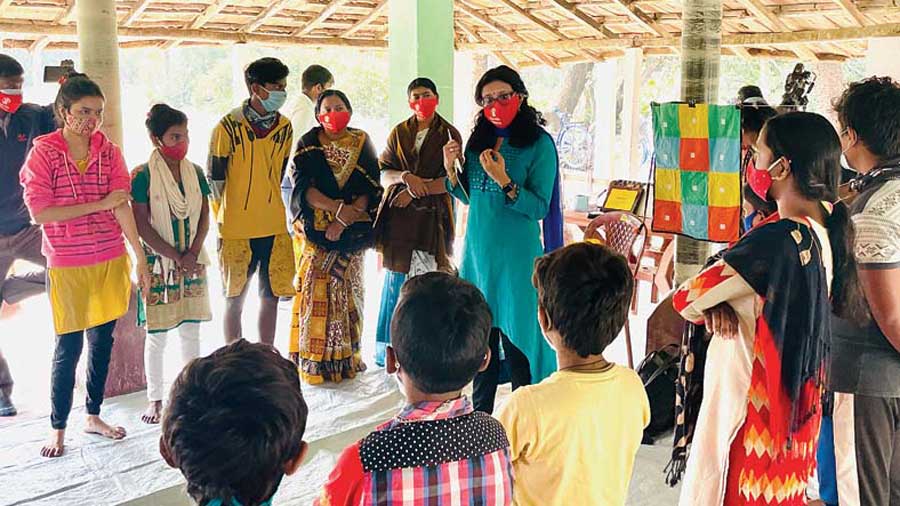
What led to your association with Save The Children?
Having a lifelong commitment to the safety and well-being of vulnerable children, I’ve been honoured to represent a number of organisations, including UNICEF, National Commission for Protection of Child Rights, Operation Smile and RAHI. I admire the work of Save the Children, internationally as well as in India (it is one of the leading child-rights organisations in India, with a global history of over 100 years), and was glad to accept its invitation to come on board as its Child Protection Ambassador two years ago. Our collaboration has been very rewarding.
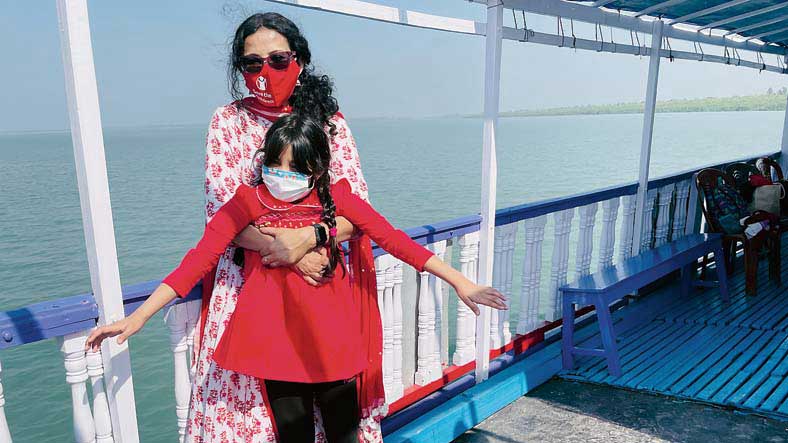
Tell us a little about ‘For a Safe Tomorrow’ campaign and the overwhelmingly positive response it has received.
The pandemic has been devastating for the most deprived children of India. The official count of children orphaned by Covid-19 is about 1.5 lakhs (NCPCR), the unofficial figure being much higher, and thousands more have been abandoned. Cut off from schools, sustenance and essentially their lifelines, these children have lost access to all basic services and aid, including nutrition, education, healthcare and protection — and nowhere has this crisis hit harder than my beloved Bengal. Countless children have lost one or both parents to the dual catastrophe of Covid-19 and Cyclone Yaas, and now stand exposed to every form of exploitation.
Knowing that an intervention was urgently needed to stop the trauma from deepening for these orphaned children, I decided to spearhead this programme in partnership with Save the Children, which has the expertise, credibility and infrastructure to roll it out on the ground at the earliest, and help the children most in need. We started out with the goal of comprehensively supporting 200 children, but thanks to the timely and generous response of over 100 donors, we have now expanded our project to take care of 315 kids. The success of our campaign is truly heartening, for it shows that all of us stand in solidarity when the cause is as urgent as the safety of children in crisis.
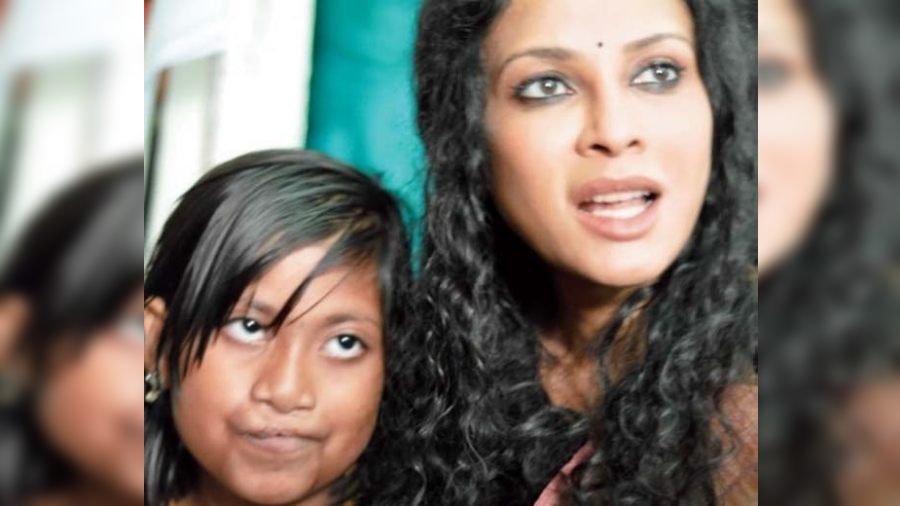
What are some of the other projects that you spearhead for Save The Children as their Child Protection Ambassador?
I’ve always been focused on girl-child safety in the organisations I’ve worked with, and in Save The Children my emphasis is on every aspect of the fight to end child trafficking, child labour, and child marriage. To give you a snapshot, with Save The Children I’ve campaigned each year against child trafficking, given talks on Instagram, radio, and other media about child labour, publicly addressed youth leaders about transformative engagement, and campaigned extensively for girls’ safety and education.
Coming back to the current crisis, the exploitation of children has been disturbingly on the rise across India because of Covid-19. The figures in West Bengal are terrifying: during the pandemic child labour more than doubled in the state, which also accounts for the second highest share of missing children in our country. And at least two out of five girls are married before their legal age in West Bengal. Having just completed the initial task of raising the support needed to take care of these at-risk children, our next project is to implement the programme fully in the intervention areas. Our scheme will provide them with food security, adequate healthcare, learning continuity, and psychosocial support until they are safe, and they are linked to state sponsorship schemes.
In fact, I’ve just returned from a very inspiring trip to the remote cyclone-struck areas of the Sunderbans, where I was as struck by the plight of children and families whose lives have been torn apart, as by the tireless and impressive work of Save the Children. And I had a chance to chat with and read books to these children, who have lost everything but are determined to smile, play, and learn.
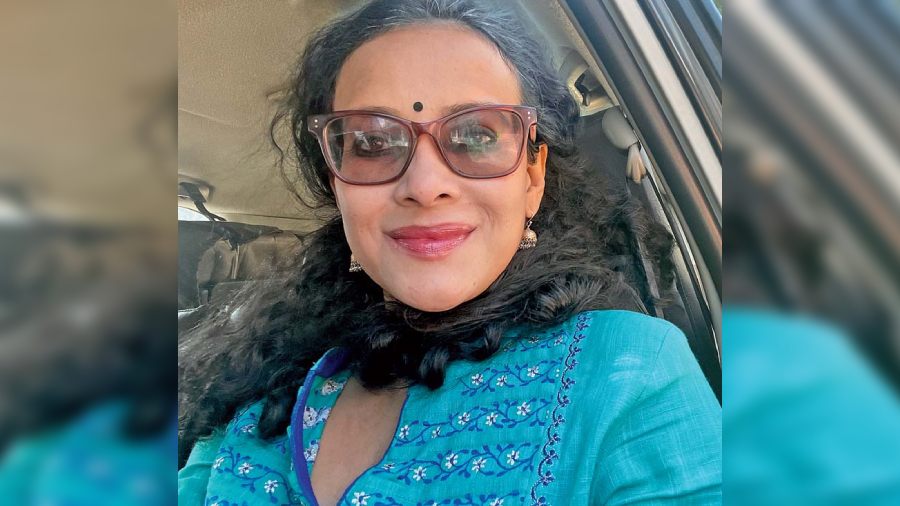
Living in the US, what is the driving force that pushes you to stay committed to this cause across time zones?
I started working with marginalised children as a young person living in India, and haven’t stopped since. Time zones don’t matter when a commitment is so central to your life. It’s about conviction, not convenience. But yes, I’ve always worked in a very hands-on way, an engagement on the ground that I’ve missed in this period distancing. I can’t tell you how good it felt to be singing, jumping and playing with kids again, to see their faces light up with laughter and hope. What else could I ask for? Children have always been my inspiration, my driving force.
